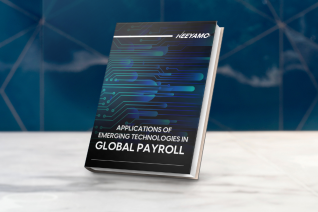Establish your presence globally with Neeyamo as we help you go beyond borders to manage your international payroll and hire new talent in Bahrain.
Overview
Despite its reputation for having a harsh and arid climate, Bahrain is the surprising home to the Tree of Life. This tree has thrived for over 400 years, maintaining its vibrant green appearance without any apparent designated water source. Located on Jebel Dukhan Hill, this enduring tree has confounded scientists perplexed by its ability to endure such a challenging environment with minimal rainfall. Some even speculate that a mystical water source may be responsible for sustaining this centuries-old marvel.
Bahrain has a lot more to offer than just a mystical tree. If your organization's expansion plans require you to hire employees in Bahrain and you lack a physical entity in the country – a key requisite to hire local talent, your solution is right here: the best payroll software for a large business, Neeyamo – a global payroll management company. Neeyamo's global payroll management system assists with onboarding and managing employees in Bahrain, along with processing a firm's payroll accounting and tax services, compliance, benefits, and more.
Tools And Instances
Facts And Stats
Capital
Manama
Currency
Bahraini Dinar (BHD)
Official Language
Arabic
Fiscal Year
1 January - 31 December
Date Format
DD/MM/YYYY
Country Calling Code
+973
Time Zone
UTC + 03:00
Global Payroll
Overview
Handling payroll for a widespread workforce can pose a significant challenge for any organization, and the added complication of compliance can make things worse. If companies spend more time processing payroll, it directly impacts day-to-day operations and their overall productivity.
Over the years, Neeyamo – a payroll service provider, has observed these complexities and strived to provide a global payroll solution through a single technology platform - Neeyamo Payroll. Neeyamos global payroll solution eases the process for companies looking for outsourced payroll providers and aids them in maneuvering the tricky payroll system in Bahrain. Neeyamos payroll software provides an affordable payroll system and the perfect solution for all your global payroll compliance needs – for employees working in primary geographies, the long-tail region, remote or internationally located.
What is a Payroll System?
A payroll system is a software that is used to manage employee payments, inclusive of their wages, deductions, bonuses, etc. Global payroll processing is typically done with the assistance of an outsourced payroll provider.
Payroll Taxes
Payroll tax is the percentage amount retained from an employee's salary and paid to the government to invest in the general population's welfare. These are statutory in nature and are levied from both the employer and employee. Additional statutory contributions are made by employers towards aiding both short-term and long-term benefits for their employees.
Employee Taxes
Employee Contributions:
- 8% for Local workers and 1% for Expat workers.
- Social Insurance (GOSI), includes coverage towards medical, retirement and disability.
Employee Income Tax:
Bahrain charges no personal income tax.
Employer Taxes
Employer Payroll Contributions: 16%
In Bahrain, employers must contribute to social insurance as follows:
- For Bahraini employees: 12% of the gross salary.
- For expatriate employees: 3% of the gross salary(Which Covers employment injuries, expatriate employees contribute 1% covers unemployment. )
Payroll Cycle
Overview
Undoubtedly, payroll is a critical process for any organization. The pay cycle in Bahrain refers to the period for which an organization pays its employees, and this can vary depending on the pay frequency that the organization chooses to adopt.
Frequency
Typically, salaried employees are paid at least once a month.
13th Month Cycle
Bahrain does not require employers to pay a 13th-month salary.
Global Work
Overview
An Employer of Record services (EOR) provider helps you eliminate the hassle of handling complexities while onboarding a new employee in an international location. They help bridge the gap that otherwise mandates organizations to have a locally registered entity and a local bank account before making a job offer to an international hire.
An Employer of Record services (EOR) provider acts as a legal employer, facilitates salary payments, and manages other statutory requirements such as health insurance, payroll taxes, and employee benefits, ensuring compliance with local tax laws and regulations.
This allows organizations to focus on collaborating with the employee in Bahrain for operational tasks, with the knowledge that they have a cost-effective solution to support their global payroll & HR requirements as they continue their global expansion.
A company that provides EOR for Bahrain would be the best fit for companies looking to expand their global workforce. Neeyamos International payroll services has your go-to solution with our Global Payroll Technology stack, providing both managed global payroll compliance with an automated payroll system as well as EOR services under one umbrella.
HR Mandates and Practices
Minimum Wage
There is no minimum wage in Bahrain.
Overtime
The employer may employ the employee for additional hours beyond the regular hours if required. Overtime hours should not exceed 2 hours per day.
Pay – The employee shall receive for each additional working hour a wage equivalent to his due wage plus at least 25% for hours worked during the day and at least 50% for hours worked during the night.
Data Retention Policy
In Bahrain, data protection and retention policies are governed by the Personal Data Protection Law (PDPL), which came into effect on August 1, 2019. This law regulates how personal data should be collected, processed, stored, and retained. Here are key points regarding data retention under Bahrain’s PDPL:
Purpose Limitation: Personal data must be retained only for as long as necessary to fulfill the purposes for which it was collected. Once the purpose is achieved, data should be deleted or anonymized.
Data Minimization: Organizations should ensure that only data necessary for the specified purposes is collected and retained.
Accuracy and Up-to-Date Data: Organizations are required to keep personal data accurate and up-to-date. Any inaccuracies should be corrected or deleted.
Hiring and Onboarding Requirements
Hiring
Employers are not prohibited from carrying out background checks, and these can be done at any stage in the hiring process.
Onboarding
Foreign nationals are required to have a work permit sponsored by an employer in Bahrain. The application for the work permit must be submitted to the Labour Market Regulatory Authority ('LMRA') using the online Expat Management System ('EMS'). The following documents must be submitted with the application:
Required documents
- Copy of the applicant's passport
- Copy of the latest paid electricity bill of the employer
- Applicant's ID card
- Copy of the offer letter or work contract between the employer and the applicant employee pages.
- Copy of medical check-up report
- Copy of the residence permit if the applicant works in any of the Gulf Cooperation Council countries.
Once the LMRA approves the application, the employer must pay the work permit fees through the EMS system. The permit must then be printed from the EMS system and taken to the Immigration Office to be stamped into the individual's passport.
After arriving in Bahrain, the employee will need a further medical check and have their photograph and fingerprints taken to be issued the Central Population Registry ('CPR') identity card
Probation
Bahrain labor law allows employers to have a probationary period, which is expressly stated in the employment contract. Probation can be used only once during the period of employment. The probationary period can last up to three months and, in certain professions, up to six months.
Leave
Public Holidays
The public holidays for Bahrain for the year 2025 are:
- January 1: New Year's Day
- March 30: Eid al-Fitr (Tentative Date)
- March 31: Eid al-Fitr Holiday (Tentative Date)
- April 1: Eid al-Fitr Holiday (Tentative Date)
- May 1: Labour Day
- June 6: Eid al-Adha (Tentative Date)
- June 7: Eid al-Adha Holiday (Tentative Date)
- June 8: Eid al-Adha Holiday (Tentative Date)
- June 26: Islamic New Year
- July 5: Ashura (Tentative Date)
- July 6: Ashura (Tentative Date)
- September 4: Prophet Muhammad's Birthday
- December 16: National Day
- December 17: National Day Holiday
Paid Leave
Paid leave is granted to workers who have completed at least six months of service with the same employer for over 12 months. Its length depends on the worker's seniority. It is 14 calendar days when the worker has less than five years of service, 21 calendar days from 5 to 10 years of service, 28 calendar days from 10 to 20 years of service, and 35 calendar days when the worker's length of service is 20 years or more.
Annual Leave
Employees with at least one year of service are entitled to 30 paid days of yearly leave, divided into 2.5 days every month.
Sick Leave
An employee completing three consecutive months in the employer's service, whose sickness and entitlement to sick leave by providing a certificate issued by any of the Government Medical Centers or any of the clinics retained by the employer, shall be entitled to the following sick leaves during the same year:
Employees receive 55 days of sick leave. The first 15 days are fully paid, the 16th to the 35th days are half-pay, and the 36th to 55th are unpaid.
Maternity Leave
A female employee shall be entitled to maternity leave. On full pay for 60 days, including the period before and after delivery, provided she produces a medical certificate retained by one of the governmental health centers or one of the clinics retained by the employer, indicating the expected delivery date.
The female employee may obtain an unpaid maternity leave for 15 days in addition to the above-mentioned leave. The female employee shall not be employed during the forty days following the delivery.
The employer shall not dismiss or terminate the labor contract of the female employee as a result of her marriage or during her maternity leave. Art 32-33 of Labor Law.
Paid Leave
The worker shall be entitled to a three-day leave on full pay in the following cases:
- In the event of his marriage for one time;
- In the event of the death of his/her spouse or any of his/her relatives to the fourth degree of kin;
- In the case of death of his/her spouse's relatives to the second degree of kin.
Male employees shall be entitled to one day's leave on full pay upon the birth of their child. The Muslim female employee shall be entitled to one month of paid leave in the event of the death of her spouse. She also has the right to complete the death waiting period from her annual leave for a period of three months and ten days, and if she does not have a balance from her annual leave, she has the right to leave without pay. Art 63 of Labor Law.
Pilgrimage Leave
A Muslim employee who has worked with the employer for five consecutive years shall be entitled to a 14-day leave with full pay to perform his Hajj (Pilgrimage) obligation. This leave shall be granted once to the employee during his period of service unless he benefited from it during his service for another employer.
The employer shall determine the number of employees to be granted such a leave of absence each year in accordance with working requirements, provided priority is given to the employee who has achieved the longest period of continuous employment. Art 67 of Labor Law
Other Leave
Child Care Leave:
Female employees are entitled to unpaid leave for taking care of their child not exceeding six years of age, of a maximum of six months each time, and for three times throughout her service.
Termination
Notice Period
The minimum notice period is 30 days. The minimum notice period may be increased contractually when the employment relationship is terminated by the employer. The Labour Law is silent as to whether the notice period can be increased if the employment relationship is terminated by the employee.
Severance Pay
Employees shall receive the following:
- First three years: 15 days' salary for each year
- From the fourth year: 30 days' salary for each year
Visa
Overview
Foreign employees will all need work visas if they take up any employment. This permit is valid for one to two years and entitles your workers to residency. You will arrange most of the paperwork.
Requirements for Visa
An employer or Bahraini national needs to sponsor anyone seeking a Bahrain working visa. The number of visas a company can sponsor depends on two factors: The physical size of the office and the limit set forth by national regulations. The employer handles the process on behalf of the employee and must show a letter of employment, commercial registration number, the employee's capacity, the contract duration, and more.
Other requirements include the following:
- A completed visa application form
- The employee's passport
- A passport-size photo
- Copy of the contract with the employee's name, birth date, and nationality
- Health record from an authorized clinic
- Proof of payment of BHD 100 fee
Employee Background Checks
Legal and Background Checks
Employers are not prohibited from carrying out background checks, and these can be done at any stage in the hiring process. Nevertheless, it is recommended that checks should only be carried out where they are proportionate and necessary and following an offer of employment. Applicants should be notified beforehand that their application will be conditional on background checks being carried out.
Expatriate job candidates must also complete satisfactory medical and police clearance checks.
Checks on social media are not regulated, and employers are free to use them to perform background checks on an applicant. However, it is recommended that these checks be confined to professional sites (e.g., LinkedIn) and carried out after the interview process to avoid any suggestion that candidates were selected or not selected because of their characteristics.
Last updated on December 26, 2024
If you have any queries or suggestions, reach out to us at irene.jones@neeyamo.com
Have Queries? Get In Touch With Us
Get in touch with one of our experts and take a quick demo of our services










